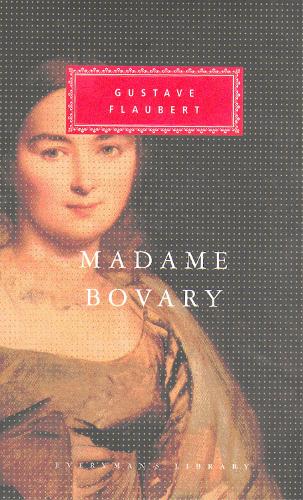
Madame Bovary: Patterns of Provincial Life
(Hardback)
Available Formats
Paperback
Published: 3rd December 2012
Paperback
Published: 18th January 2022
Paperback
Published: 6th March 2003
Hardback
Published: 24th September 2014
Hardback
Published: 26th September 2017
Hardback
Published: 31st January 2013
Paperback
Published: 27th March 2013
Paperback
Published: 17th October 2023
Paperback, New edition
Published: 5th November 1993
Paperback, Enriched Classic
Published: 5th December 2007
Paperback
Published: 15th September 2011
Paperback
Published: 10th December 2011
Paperback
Published: 12th September 2013
Hardback
Published: 28th May 1993
Paperback
Published: 29th June 2009
Paperback
Published: 1st September 2009
Hardback
Published: 1st September 2009
Paperback, Large Print Edition
Published: 15th April 2011
Publishing Details
Madame Bovary: Patterns of Provincial Life
By (Author) Gustave Flaubert
Everyman
Everyman's Library
28th May 1993
11th March 1993
United Kingdom
Classifications
Physical Properties
Hardback
376
Width 133mm, Height 211mm, Spine 28mm
572g
Description
Described by Henry James as 'one of the first of the classics' and so regarded ever since, MADAME BOVARY has touched generations of readers and moulded generations of writers. The story of a little woman in a provincial town who dreams of happiness and then perishes by her own hand is worked up by Flaubant into a profound and heart rending study of human bondage.
Author Bio
Gustave Flaubert was born in Rouen in 1821, the son of a distinguished surgeon and a doctor's daughter. After three unhappy years of studying law in Paris, an epileptic attack ushered him into a life of writing. Madame Bovary won instant acclaim upon book publication in 1857, but Flaubert's frank display of adultery in bourgeois France saw him go on trial for immorality, only narrowly escaping conviction. Both Salammbo (1862) and The Sentimental Education (1869) were poorly received, and Flaubert's genius was not publicly recognized until Three Tales (1877). His reputation among his fellow writers, however, was more constant and those who admired him included Turgenev, George Sand, Victor Hugo and Zola. Flaubert's obsession with his art is legendary: he would work for days on a single page, obsessively attuning sentences, seeking always le mot juste in a quest for both beauty and precise observation. His style moved Edmund Wilson to say,'Flaubert, by a single phrase - a notation of some commonplace object - can convey all the poignance of human desire, the pathos of human defeat; his description of some homely scene will close with a dying fall that reminds one of great verse or music.' Flaubert died suddenly in May 1880, leaving his last work, Bouvard and Pcuchet, unfinished.
